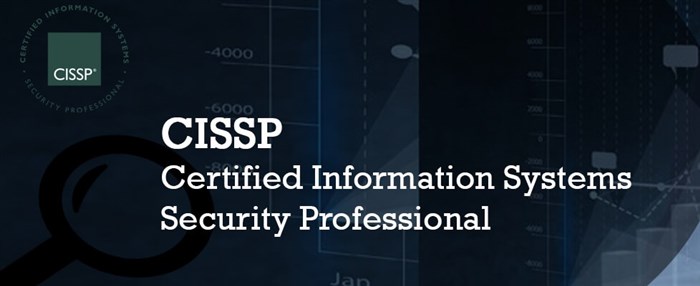
The Crucial Role of CISSP Certification for IT Security Professionals
In today’s rapidly evolving digital landscape, the importance of robust cybersecurity measures cannot be overstated. As cyber threats become more sophisticated and pervasive, organizations worldwide are grappling with the challenge of safeguarding their sensitive data and critical systems. In this high-stakes environment, Certified Information Systems Security Professionals (CISSPs) play a pivotal role in ensuring the integrity, confidentiality, and availability of information assets. This article delves into why IT security professionals need a CISSP certification and explores the myriad benefits it offers in bolstering the capabilities and credibility of cybersecurity experts.
- Demonstrated Expertise: A Stamp of Mastery
Attaining CISSP certification is not a walk in the park. It requires a comprehensive understanding of information security concepts, practices, and principles. CISSP candidates must demonstrate proficiency in various domains, including security and risk management, asset security, security engineering, communication and network security, identity and access management, security assessment and testing, security operations, and software development security. This broad range of knowledge ensures that CISSP-certified professionals possess a holistic understanding of the complex and interconnected nature of cybersecurity.
By successfully obtaining the CISSP certification, IT security professionals showcase their commitment to continuous learning and mastery in the field. Employers value this demonstration of expertise, making CISSP a gold standard for recognizing the skills and knowledge necessary to navigate the intricate landscape of cybersecurity.
- Global Recognition: A Passport to Opportunities
The CISSP certification is globally recognized and respected in the cybersecurity industry. Whether you’re a seasoned professional or a newcomer to the field, holding a CISSP credential opens doors to a wealth of opportunities. Many organizations, both in the public and private sectors, specifically seek CISSP-certified individuals to lead and manage their cybersecurity initiatives.
Moreover, CISSP is often a prerequisite for high-profile positions, such as Chief Information Security Officer (CISO) or other senior-level roles. As companies increasingly prioritize cybersecurity in their strategic agendas, the demand for skilled professionals with CISSP certification continues to grow, making it a valuable asset for career advancement.
- Risk Management Proficiency: Safeguarding Organizational Assets
One of the core domains covered in the CISSP certification is security and risk management. This domain equips professionals with the skills to identify, assess, and mitigate risks effectively. In today’s digital landscape, where cyber threats are omnipresent and continually evolving, the ability to manage risks is paramount.
CISSP-certified professionals are trained to develop and implement robust risk management programs, ensuring that organizations can identify vulnerabilities and proactively address potential threats. This proficiency in risk management not only safeguards sensitive information but also contributes to the overall resilience of an organization in the face of evolving cybersecurity challenges.
- Ethical Hacking and Security Assessment: Staying One Step Ahead
CISSP certification delves into security assessment and testing, empowering professionals with the skills to identify and rectify vulnerabilities before malicious actors exploit them. This aspect of the certification involves ethical hacking, where individuals simulate cyber attacks to assess the security posture of systems and networks.
By acquiring these skills, CISSP-certified professionals can stay one step ahead of cyber adversaries. They understand the methodologies employed by hackers and can apply this knowledge to fortify defenses, making it more challenging for unauthorized entities to compromise systems or data.
- Governance and Compliance: Navigating Regulatory Landscapes
In an era of stringent data protection regulations and compliance standards, organizations must navigate complex legal and regulatory landscapes. CISSP certification includes a domain dedicated to security and compliance, ensuring that professionals are well-versed in the legal frameworks and regulations governing the use and protection of information assets.
By understanding and adhering to these regulations, CISSP-certified professionals help organizations avoid legal pitfalls and reputational damage. They play a crucial role in ensuring that cybersecurity practices align with regulatory requirements, providing a robust foundation for building trust with customers, partners, and regulatory authorities.
- Networking and Collaboration: Building a Global Community
CISSP certification is not just about individual achievement; it also fosters a sense of community among professionals who share a commitment to cybersecurity excellence. The International Information System Security Certification Consortium, or (ISC)², which administers the CISSP certification, provides a platform for networking, collaboration, and knowledge exchange.
Being part of this global community allows CISSP-certified professionals to stay updated on the latest industry trends, emerging threats, and best practices. This collaborative environment is invaluable in a field where staying informed and connected is essential for effectively addressing the dynamic and evolving nature of cybersecurity challenges.
- Continuous Professional Development: Adapting to Change
The field of cybersecurity is in a perpetual state of evolution. New technologies, threats, and vulnerabilities emerge regularly, requiring professionals to stay abreast of the latest developments. CISSP certification mandates the accumulation of continuing professional education (CPE) credits to maintain certification.
This commitment to ongoing learning ensures that CISSP-certified professionals remain well-informed about the latest trends and advancements in cybersecurity. It underscores the importance of adaptability and a proactive approach to professional development, qualities that are crucial in a field where complacency can lead to vulnerabilities and lapses in security.
Conclusion
In conclusion, the Certified Information Systems Security Professional (CISSP) certification is a cornerstone in the career path of IT security professionals. It not only validates their expertise but also equips them with a comprehensive skill set to tackle the multifaceted challenges posed by cyber threats. From risk management and ethical hacking to governance and compliance, CISSP certification covers a broad spectrum of knowledge essential for safeguarding organizational assets in today’s digitally-driven world.
The global recognition of CISSP certification opens doors to a myriad of career opportunities, allowing professionals to take on leadership roles and contribute significantly to their organizations’ cybersecurity posture. Furthermore, the commitment to continuous learning inherent in the certification process ensures that CISSP-certified professionals remain at the forefront of the ever-evolving cybersecurity landscape.
For IT security professionals aspiring to make a meaningful impact in their careers and contribute to the broader goal of securing digital assets, CISSP certification is not just a qualification—it’s a commitment to excellence and a key that unlocks a world of possibilities in the dynamic and challenging realm of cybersecurity.



